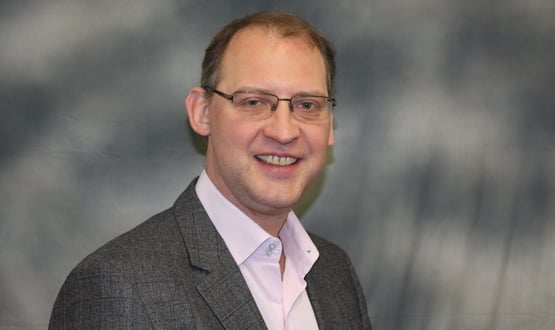New joint data chief at CQC and NHS Improvement
- 20 December 2016

A new role has been created to ensure data consistency across the Care Quality Commission and NHS Improvement.
Peter Sinden will be starting the job of chief digital officer for both organisations in January, moving from his previous role as chief information officer at Monitor, part of NHS Improvement.
Sinden said in the past the two bodies collected information independently, analysed it slightly differently and presented it back to the sector in “slightly confused ways”.
“What we do want to do is make sure the data comes in the right format, is manipulated in consistent ways, presented back to trusts in the same timelines”, Sinden said.
The role will be split evenly in terms of time with each organisation.
The CQC is the independent regulator of health and adult social care in England, and NHS Improvement is responsible for holding providers to account.
One of the key things Sinden wanted to achieve by the end of 2017 was reducing the data burden on trusts, but “exactly how far we get along those journeys with all providers, is yet to be seen”.
This could be achieved through a shift from collection to extraction, said Sinden. For example, A&E statistics are now being compiled through software that allows for automated extraction rather than manual data entry.
A 2013 Challenging Bureaucracy report, commissioned by health secretary Jeremy Hunt, found that administrative staff spend up to 20 hours a week finding data for nationally-mandated returns and reports to regulatory bodies.
The report said that data collection costs each trust an average of £1.4 million a year, bringing the total yearly cost for the NHS to between £300 million and £500 million.
The data strategies will be aligned to National Information Board’s broad strategies, Sinden said.
“What we don’t want to do is rebuild different things in a different corner independent from others”.
He said that the overall the National Information Board was looking to move to automatic consolidated extraction on NHS data.
Sinden said he could not comment on exact mechanism for collecting the data yet but it would not be about “consolidating hardware and databases”.
The appointment follows CQC’s announcement in May that it would be scaling down inspections and instead rely more heavily on data and user feedback.
The shift to an “intelligence-driven approach to regulation” was in response to a consultation process the previous year and budget cuts at the regulator, which must reduce its budget by £32 million over the next four years.
However, the CQC has come under fire in the past for its data collection. In December 2014, the regulatory body was criticised for incorrectly placing 60 GP practices in high-risk categories as a result of “severely flawed” data in a monitoring tool.




